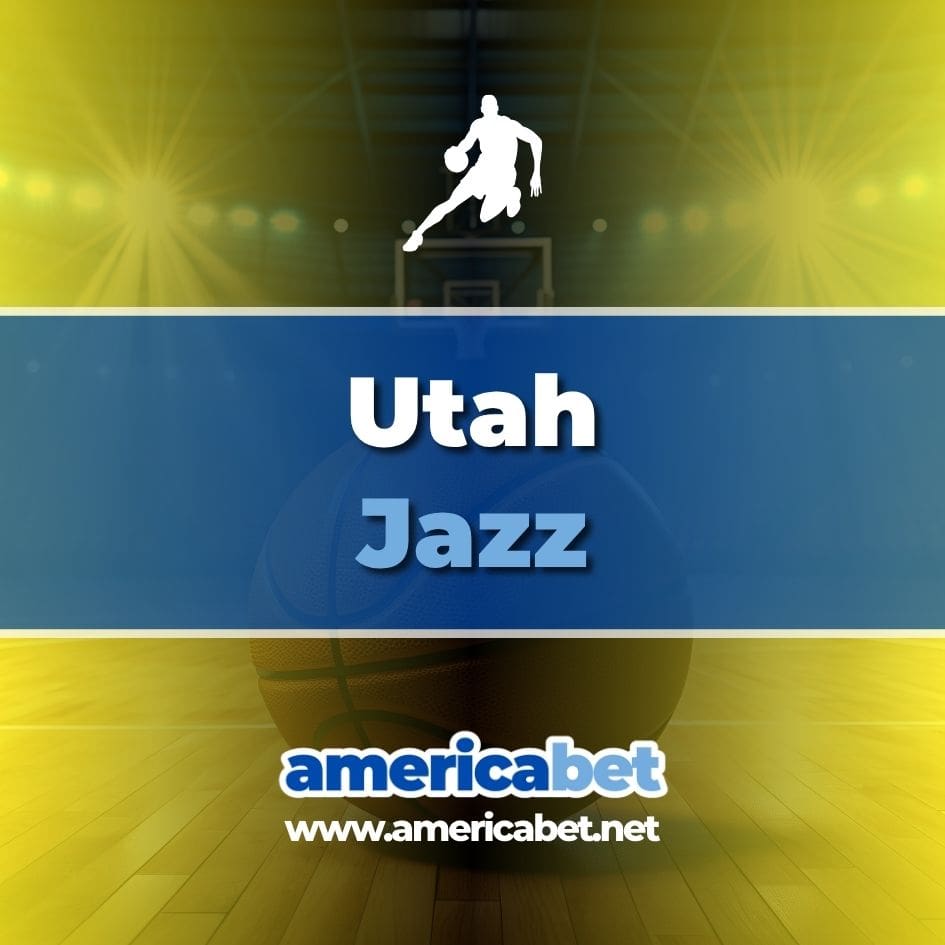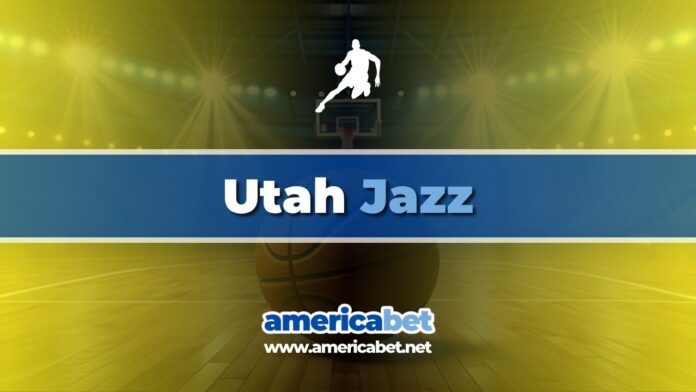Introduction to Utah Jazz
The Utah Jazz are a professional basketball team based in Salt Lake City, Utah, competing in the Western Conference of the National Basketball Association (NBA). Officially known as the Utah Jazz, the team has long been a fixture in American professional basketball, known for its passionate fanbase, high-altitude home court advantage, and rich basketball history.
Originally established as the New Orleans Jazz in 1974, the franchise relocated to Utah in 1979, retaining its original name despite the cultural mismatch—a quirky detail that has become part of its unique identity. Over the decades, the Jazz have built a reputation for disciplined, fundamental basketball, and have consistently been a competitive force in the league. They rose to national prominence in the 1990s under head coach Jerry Sloan, thanks to the iconic duo of John Stockton and Karl Malone, who led the team to back-to-back NBA Finals appearances in 1997 and 1998.
Despite not yet securing an NBA championship, the Utah Jazz are widely respected across the league for their consistency, player development, and strong organisational culture. Known for fostering a team-first mentality and playing in one of the NBA’s most intense home venues—currently the Delta Center—the Jazz continue to be a benchmark for how a small-market franchise can remain relevant and competitive year after year.
Whether rebuilding or making playoff runs, the Utah Jazz remain a symbol of resilience and ambition in the NBA landscape, with a legacy that combines storied tradition with modern promise.
History of Utah Jazz
The Utah Jazz franchise was originally founded in 1974 as the New Orleans Jazz, entering the NBA as an expansion team. The name “Jazz” was chosen as a tribute to the city’s vibrant musical heritage. However, due to financial struggles and the lack of a suitable arena, the team relocated to Salt Lake City, Utah, in 1979. Despite the cultural disconnect, the Jazz name remained and has since become synonymous with Utah’s proud basketball tradition.
The 1980s were marked by the emergence of the team’s identity, with the Jazz slowly building a competitive roster. The hiring of head coach Frank Layden and the drafting of key players like Adrian Dantley helped set the stage for future success. However, it was the 1984 and 1985 NBA drafts that changed the course of the franchise, bringing in point guard John Stockton and power forward Karl Malone, two players who would define the Jazz for nearly two decades.
Under the leadership of head coach Jerry Sloan, who took over in 1988, the Jazz became a perennial playoff team. The Stockton-Malone era reached its peak in the late 1990s, when the Jazz reached back-to-back NBA Finals in 1997 and 1998. Despite falling short to Michael Jordan’s Chicago Bulls on both occasions, those seasons remain some of the most celebrated in the team’s history. 
The post-Stockton-Malone era saw periods of rebuilding and resurgence. In the late 2000s, the Jazz once again became playoff contenders behind the likes of Deron Williams and Carlos Boozer. More recently, the team found success with a new core featuring Donovan Mitchell and Rudy Gobert, consistently finishing near the top of the Western Conference standings throughout the late 2010s and early 2020s.
Though the franchise has yet to secure an NBA Championship, it is one of the most stable and respected organisations in the league. The Jazz have been lauded for their scouting, player development, and ability to stay competitive despite being in a small market. Their legacy is not just about wins and losses, but about the enduring culture of hard work, resilience, and loyalty to their fanbase.
Utah Jazz Key Figures
Several iconic individuals have shaped the identity and success of the Utah Jazz over the years:
John Stockton – Widely regarded as one of the greatest point guards in NBA history, Stockton spent his entire career with the Jazz. Known for his incredible passing and defensive skills, he holds the NBA records for both career assists and steals. His partnership with Karl Malone was legendary and formed the backbone of the Jazz for nearly two decades.
Karl Malone – Nicknamed “The Mailman” for always delivering consistent performances, Malone is one of the highest-scoring players in NBA history. A two-time NBA MVP, he was the perfect counterpart to Stockton and a dominant force on the court, known for his strength, durability, and relentless scoring ability.
Jerry Sloan – As head coach from 1988 to 2011, Sloan became one of the longest-tenured coaches in NBA history. His no-nonsense style and focus on team-oriented basketball helped forge the Jazz’s identity. Under his guidance, Utah became one of the most respected teams in the league, making multiple deep playoff runs.
Frank Layden – Before Jerry Sloan, Layden was instrumental in shaping the early years of the franchise, serving as both head coach and general manager. His leadership during the 1980s helped the Jazz become a playoff-calibre team.
Gail Miller – The long-time owner of the Jazz, Miller and her late husband, Larry H. Miller, provided steady ownership that prioritised community engagement and stability. Under her leadership, the Jazz were seen as one of the most community-focused franchises in professional sports.
Rudy Gobert – A dominant defensive force and multi-time NBA Defensive Player of the Year, Gobert played a key role in the Jazz’s resurgence in the late 2010s and early 2020s. His shot-blocking, rebounding, and presence in the paint redefined Utah’s defensive identity.
Donovan Mitchell – Emerging as a dynamic scorer and fan favourite, Mitchell became the face of the franchise during his tenure. His electrifying playstyle and leadership helped the team remain competitive in the Western Conference and rekindled national attention on the Jazz.
Together, these figures represent the legacy and values of the Utah Jazz—excellence, loyalty, and a commitment to team success.
Stadium Information: Delta Center
The Utah Jazz play their home games at the Delta Center, a modern, state-of-the-art arena located in the heart of downtown Salt Lake City. Originally opened in 1991 as the Delta Center, the venue has undergone several name changes over the years, including EnergySolutions Arena and Vivint Arena, before returning to its original Delta Center name in 2023.
With a seating capacity of approximately 18,300 for basketball games, the Delta Center provides one of the most electrifying atmospheres in the NBA. Known for its steep seating angles and intimate sightlines, the arena amplifies crowd noise, making it a notoriously tough venue for visiting teams. The high altitude of Salt Lake City only adds to the home-court advantage, as teams unaccustomed to the thinner air can struggle with stamina and endurance.
The Delta Center is more than just a basketball arena—it’s a cultural hub. It hosts concerts, family shows, and other sporting events throughout the year, drawing millions of visitors. Its location in downtown Salt Lake City makes it easily accessible and a focal point for community gatherings, cementing its role as a cornerstone of the region’s entertainment and sports landscape.
Cultural Impact
The Utah Jazz are deeply woven into the cultural fabric of Salt Lake City and the state of Utah as a whole. As the only major professional sports franchise in the state, the Jazz command a uniquely devoted and widespread fanbase. Game nights in Salt Lake City are civic events, with thousands filling the Delta Center and many more tuning in from homes and businesses across the region.
The team’s identity has long been associated with hard work, discipline, and a team-first mentality—values that resonate strongly with the local community. Utah fans take immense pride in supporting their team, often referred to as the “Jazz Nation,” and are known for their knowledge of the game and unrelenting loyalty. Whether the team is rebuilding or contending, the fanbase remains one of the most passionate in the league.
One of the most iconic elements of Jazz culture is the deep-rooted rivalry with the Denver Nuggets, known as the “Rocky Mountain Rivalry.” This long-standing feud between the geographically close teams often brings extra intensity to matchups, regardless of standings or stakes.
Fan traditions such as the crowd’s deafening volume during playoff games, the sea of matching T-shirts during whiteout nights, and the enduring affection for former legends like John Stockton and Karl Malone have become defining traits of the Jazz experience. The franchise also plays an active role in the community through charitable efforts, youth basketball initiatives, and educational programmes.
In many ways, the Utah Jazz are more than just a basketball team—they’re a symbol of regional pride, unity, and perseverance. Their cultural significance extends far beyond the hardwood, making them a central pillar of life in Utah.
Achievements
While the Utah Jazz have yet to win an NBA Championship, the franchise has built a proud legacy of competitive excellence and historic milestones:
- NBA Finals Appearances: 1997, 1998
- Western Conference Championships: 1997, 1998
- Division Titles: 11 (including 1984, 1989, 1997, 1998, 1999, 2000, 2001, 2008, 2017, 2021, 2022)
- Consistent Playoff Appearances: Over 30 times since the team’s inception
- Individual Player Awards:
- Karl Malone – NBA Most Valuable Player (1997, 1999)
- Rudy Gobert – NBA Defensive Player of the Year (2018, 2019, 2021)
- John Stockton – NBA All-Time Leader in Assists and Steals
- Hall of Fame Inductees: John Stockton, Karl Malone, Jerry Sloan (coach), Adrian Dantley
The Utah Jazz are recognised for their long-standing consistency, player loyalty, and development. Their contributions to the sport go beyond titles, with numerous All-Star appearances, Olympic representations, and legendary career milestones.
Films and Documentaries Featuring Utah Jazz
The Utah Jazz have been featured in several basketball documentaries and films that explore the franchise’s history, legendary players, and defining moments:
- “The Dream Team” (2012) – A documentary featuring Karl Malone and John Stockton as part of the 1992 Olympic team.
- “Stockton to Malone” – A segment featured in NBA TV retrospectives covering the iconic duo and their Finals runs.
- “The Last Dance” (2020) – The critically acclaimed docuseries about Michael Jordan and the 1990s Bulls features extended segments on their Finals battles with the Jazz in 1997 and 1998.
- NBA Hardwood Classics – Multiple episodes and game reruns featuring key playoff moments involving the Jazz.
While there has not yet been a full-length standalone documentary solely focused on the Utah Jazz, their consistent appearance in league history retrospectives underscores their importance to the NBA’s narrative.
Famous Supporters of Utah Jazz
The Utah Jazz have attracted a mix of high-profile local and national supporters over the years. Some of the most notable fans include:
- Post Malone – The chart-topping musician, while not originally from Utah, has shown love for the Jazz and performed at the Delta Center.
- Donny Osmond – A longtime supporter of the team and Utah native.
- Karl Malone – Though a former player, Malone remains closely connected with the franchise as a public supporter and ambassador.
- David Archuleta – The “American Idol” finalist and Utah native has been spotted at games and voiced his support.
- Mitt Romney – The U.S. Senator from Utah is frequently seen courtside during Jazz games.
These supporters help amplify the team’s visibility beyond the sport, contributing to the broader culture surrounding the Jazz.
Social Media Presence of Utah Jazz
For fans looking to stay connected with the team and its vibrant online community, the Utah Jazz maintain an active and engaging social media presence across all major platforms:
- Official Website: https://www.nba.com/jazz
- Twitter/X: @utahjazz
- Instagram: @utahjazz
- Facebook: Utah Jazz
- YouTube: Utah Jazz Channel
- TikTok: @utahjazz
- Threads: @utahjazz
Popular fan-run social media pages also contribute to the conversation with insights, memes, and commentary:
- r/UtahJazz (Reddit): https://www.reddit.com/r/UtahJazz/
- Jazz Nation News: @JazzNationNews (Twitter/X)
- Jazz Notes Podcast: Available on Spotify, Apple Podcasts, and Twitter via @JazzNotesPod
These platforms offer fans an immersive way to keep up with breaking news, highlights, behind-the-scenes content, and spirited community discussions.

